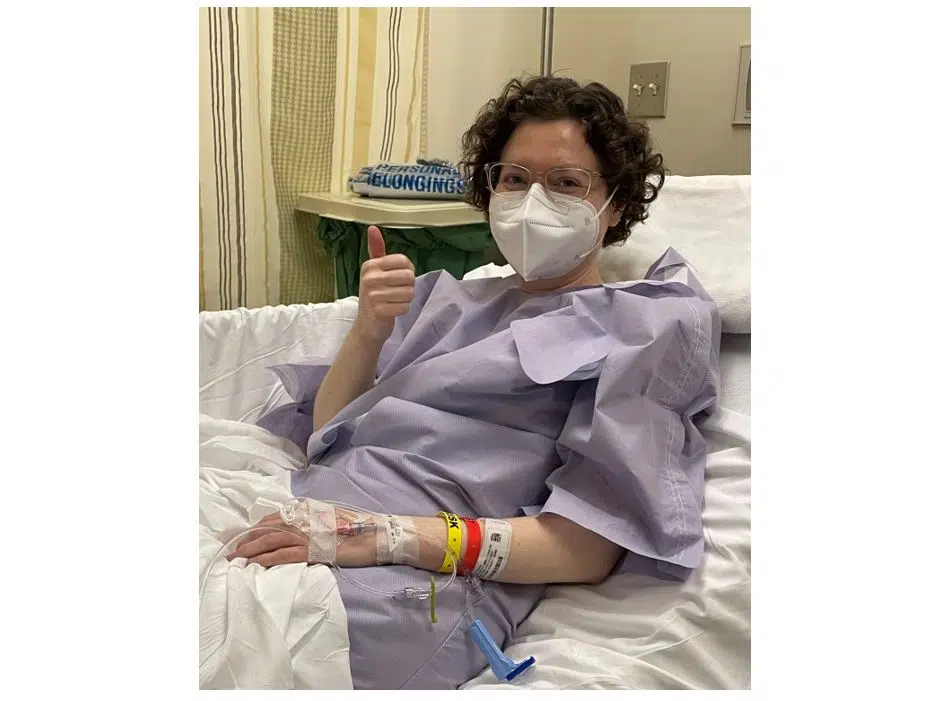by Nina Swirsky
For women with hereditary cancer risk, few decisions are more challenging and personal than whether to have a preventive mastectomy. We can and should review the research on the risk and recommended options relevant to our medical and family history, genetic mutation and age. For some women, this may lead to a very clear conclusion. But for many others, choices to screen or remove the breasts are rational decisions with a sound scientific basis. Factors such as risk tolerance, family support, work or financial pressures, the role of breasts in feminine identity and the relative fear of pain and death are what ultimately drive a woman’s decision.
I’m not a medical professional, and what I say should not be taken as medical advice—that should come from your own doctors. I made choices that made sense for me. I was 47 when I learned of my BRCA2 gene mutation. I have good health insurance and a job that is high pressure but doesn’t require physical exertion. I have a busy partner and teenagers to take care of, and an aging, widowed mother. I had little relevant family history to inform my decision. You may have different options and make different decisions based on your body, your life, your family history, priorities, resources, etc. When it comes to hereditary breast cancer risk, there isn’t one right answer for everyone.
The first four doctors I saw recommended mastectomy. These included my gynecologist, a breast oncologist who showed me a chart representing the steep curve of my increasing cancer risk after age 47 and a plastic surgeon who described cases of patients with BRCA mutations who chose screening over mastectomy who were ultimately diagnosed with stage II cancer. During a consultation, a medical oncologist gestured toward the waiting room saying, “You don’t want to join that club.” I also had opinions from experts at Johns Hopkins and a team assembled by my insurance company to review complex cases. These validated the recommendation for surgery but also presented screening as a reasonable option.
Ultimately, my decision came down to personal factors:
My father’s genes
Two weeks after my father had a routine medical check-up that found nothing alarming, at age 60 he was diagnosed with stage IV cancer throughout his body. The oncologist couldn’t determine the origin—maybe the skin (melanoma) or the prostate—and said it was the most aggressive cancer he’d ever seen. Dad was dead days later. He never got to enjoy his retirement or see his grandkids grow. He was my best friend, and I feel his loss every day.
While Dad’s cancer experience didn’t provide much information about my breast or ovarian cancer risk or at what age my risks might reach a tipping point, it was an important driver of my mastectomy decision for one reason: He didn’t get a chance to fight his cancer.
Intellectually, I understand that with regular screenings, the likelihood of spotting breast cancer early enough to treat it successfully is very high. I recall reading studies that preventive mastectomy does not necessarily increase life expectancy. And I understand that Dad’s situation was different than mine in many ways. But I wanted to avoid developing cancer if I could.
My mother’s genes
I didn’t inherit my BRCA mutation from my mother, but I did inherit her tendency to be neurotic and catastrophize. This personality trait made the pattern of repeatedly getting screened and fearing the worst a particularly miserable experience. Also, my tendency to assume the worst led me to minimize the possibility that I wouldn’t get cancer. So my decision came down to either having the mastectomy now or having it later, potentially with the additional misery of chemo or radiation. Since mastectomy is bad enough without other cancer treatment, I opted for the lesser evil.
My partner
I’m engaged to the love of my life. This will be the second marriage for both of us. We look forward to decades of enjoying our lives together, and I don’t want our precious time to be clouded by a battle with cancer. I thought it would be preferable to have surgery on my own timetable, in hopes of avoiding a longer and harder battle later. Also, (I know this isn’t very modern) I want to be healthy so I can be the type of supportive partner I want to be.
The visual result
I researched breast reconstruction options, spoke to a plastic surgeon and listened to breast cancer survivors. I concluded that I’d be likely to have more control over my reconstruction with a proactive mastectomy and wished to try and avoid a mastectomy and cancer treatment in the future.
Mammograms and dense breasts
I hated having mammograms. My small and extremely dense breasts did not make for an easy mammogram experience. My screenings were consistently followed by letters saying that mammography would be less likely to detect early-stage cancer. This combination of factors made the screening route less appealing and inspired less confidence.
Nina Swirsky is a marketing executive and writer based in Maryland.
